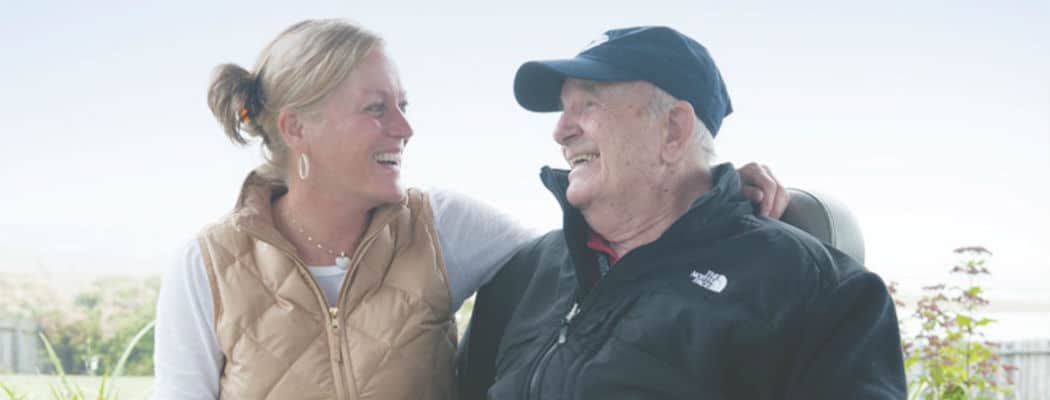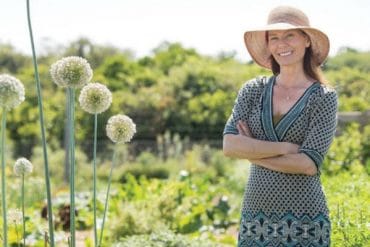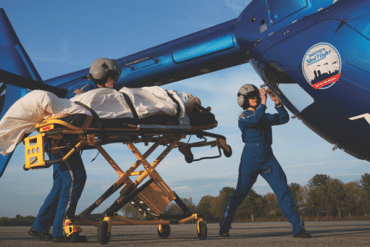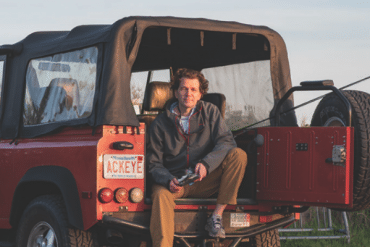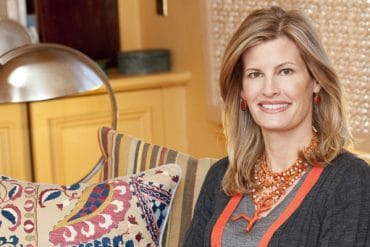Lessons in the timelessness of friendship.
This is not a story about someone rich and famous. He wasn’t a CEO or an MVP. In fact, most people reading this probably have never even heard of him. No, this is a story about an ordinary man who taught me about living an extraordinary life.
 I first met David Worth three years ago as a volunteer for Nantucket Wheelers, a program started by local islander Darcy Creech that uses specially-designed tandem bicycles to take nursing home residents out for tours around the island during the summertime. David and his fellow residents lived on one of the most prized pieces of property in all of Nantucket. Set behind Marine Home Center, Our Island Home looks out onto the harbor, with spectacular views of the marshes and the rest of Nantucket Sound stretching out to the horizon. Yet behind the nursing home’s sliding glass doors, the sounds and the smells of the sea could seem a world away. So it was with the giddy excitement of a prison break that David and I would head out for a bike ride every Tuesday.
I first met David Worth three years ago as a volunteer for Nantucket Wheelers, a program started by local islander Darcy Creech that uses specially-designed tandem bicycles to take nursing home residents out for tours around the island during the summertime. David and his fellow residents lived on one of the most prized pieces of property in all of Nantucket. Set behind Marine Home Center, Our Island Home looks out onto the harbor, with spectacular views of the marshes and the rest of Nantucket Sound stretching out to the horizon. Yet behind the nursing home’s sliding glass doors, the sounds and the smells of the sea could seem a world away. So it was with the giddy excitement of a prison break that David and I would head out for a bike ride every Tuesday.
While I pedaled along the bike path out to Surfside Beach, David loved to wave to people. At intersections, down at the beach, or even to passing cars, he’d raise his crooked, old hand and gesture a warm hello. He was just so happy to be outside and back in the world again. Despite being in his late eighties and confined to a wheelchair, it was obvious that David hadn’t lost his love of life. He zealously took advantage of every opportunity to spring free and engage with the world.
During our rides, we would trade snapshots of our lives, which were separated by nearly sixty years. David was a descendant of one of the island’s first settlers, William Worth, who came to Nantucket in 1662 and married Sarah Macy. Generations later, David’s parents were in the hospitality business and ended up running the Point Breeze Hotel. As for David, he held a number of jobs, first as a licensed mortician, then a plumber, a carpenter and a mason. Ultimately, it was in his thirty-five-year tenure as the manager of the Wannacomet Water Company that David became widely respected around town. He was tremendously active in the community as a member of Wharf Rats, a deacon at the Congregational Church, the president of the Chamber of Commerce and the Nantucket Rotary Club, and a trustee at the Nantucket Historical Association. Not surprisingly, when I met him, he was serving as the president of Our Island Home’s resident council and as the unofficial spokesman of the Wheelers program.
 But David was always more interested in hearing about my life than talking about his own. He’ d ask how I’ d spent the week since our last ride, if I had met anyone interesting or come across any good stories. I’d keep him abreast on the comings and goings of the island, which was growing more and more unrecognizable from his glory days. We’d talk about our families. David had met his late wife Laura while riding on the ferry and they went on to have several children and grandchildren, whom he loved telling me about. Mostly, though, we just shot the breeze, pausing our conversation to greet people we passed on the bike path. After waving, David liked to leave his hand up and feel the air stream through his fingers as I peddled us over the pavement.
But David was always more interested in hearing about my life than talking about his own. He’ d ask how I’ d spent the week since our last ride, if I had met anyone interesting or come across any good stories. I’d keep him abreast on the comings and goings of the island, which was growing more and more unrecognizable from his glory days. We’d talk about our families. David had met his late wife Laura while riding on the ferry and they went on to have several children and grandchildren, whom he loved telling me about. Mostly, though, we just shot the breeze, pausing our conversation to greet people we passed on the bike path. After waving, David liked to leave his hand up and feel the air stream through his fingers as I peddled us over the pavement.
That following winter took its toll on David. I hadn’t seen him since we’d stowed the bikes in the fall. When I picked him up for our first ride in the spring, I was startled by his condition. He’d lost more than forty pounds, and his legs had become stiff and contorted. He looked frail and old, and getting him into the bike was an uncomfortable process. But David refused to give up on our Tuesday rides. He seemed to have accepted this final stage of his life, and he wasn’t going to allow his frailty to prevent him from enjoying our rides, and in turn, our friendship.
It was undeniable that he was nearing the end of his life. Each week when I came to pick him up for our ride, I’d notice small changes from the week before. He wouldn’t be able to zip up his jacket for instance, or he couldn’t bite down on the ice cream sandwich we’d eat at the Surfside snack shack. Time felt increasingly fleeting. Each of our rides became precious in my mind, and I was hoping he would share with me some life lessons.
I once asked him what he considered to be his greatest accomplishment. He sat thinking for a while and eventually grew uncomfortable with the question. In his silence, I thought of all the ways he could answer: his large family, his successful career, his great influence on the island. But David never answered, and I regretted posing the question.
Another off-season came and went without me seeing David over the course of the winter. I’d drive by the nursing home and think to stop and say hi, but in- stead I’ d just keep driving. I’ ll go tomorrow, I thought. In the spring, I received a call from a fellow Wheeler. “David is saying goodbye to people,” she said. “He doesn’t have much more time.” Clearly I was running out of tomorrows.
 I hustled to Our Island Home, but when I arrived, his bed was empty. I went to the front desk and asked the head nurse where David was, and to my relief she said he was in the dining room. I entered to find him flanked by his children and grandchildren, sitting at the head of the table. His hand shot up and a smile spread across his face when he spotted me in the doorway. When I approached, he took my hand and patted my arm. He tried to say something to me, but nothing came out. He gestured that he couldn’t talk. “That’s ok,” I said. But still David pulled me in close, and I lowered my ear to him. In the meekest voice, he whispered, “You be good.”
I hustled to Our Island Home, but when I arrived, his bed was empty. I went to the front desk and asked the head nurse where David was, and to my relief she said he was in the dining room. I entered to find him flanked by his children and grandchildren, sitting at the head of the table. His hand shot up and a smile spread across his face when he spotted me in the doorway. When I approached, he took my hand and patted my arm. He tried to say something to me, but nothing came out. He gestured that he couldn’t talk. “That’s ok,” I said. But still David pulled me in close, and I lowered my ear to him. In the meekest voice, he whispered, “You be good.”
David Worth passed away a couple weeks later at the age of eighty-seven surrounded by his family. His life is being celebrated this September at the First Congregational Church. Coincidentally, around the same time as David’s memorial service, The Nantucket Project will be showing a short film titled “Taller Than the Trees,” which explores the cultural imperatives around venerating the elderly. Sadly, that’s not a cultural imperative in the United States, as a large percentage of the elderly in this country suffer from extreme isolation and depression. Having lost loved ones and endured illness, many of the elderly find themselves dwindling into despair that becomes deeper and darker with each passing year. Many aren’t as lucky as David, who had a big supportive family around him and the personal gusto to continue to seize the day.
See, what my Tuesdays with David taught me was about fighting for one’s life. Not in any survival sense, or battling a disease, but rather in the day-to-day sense of liv- ing. David’s body had failed him. He’d lost most of his independence. The many years of his life must have weighed heavily on him. And yet he never lost his vigor for life, his smile, or his desire to make new friends, even with a lifetime of friendships in his wake. David taught me that we’re only given so many tomorrows; our job is to live today. Sometimes, however, we need a little help from our friends to do that.


